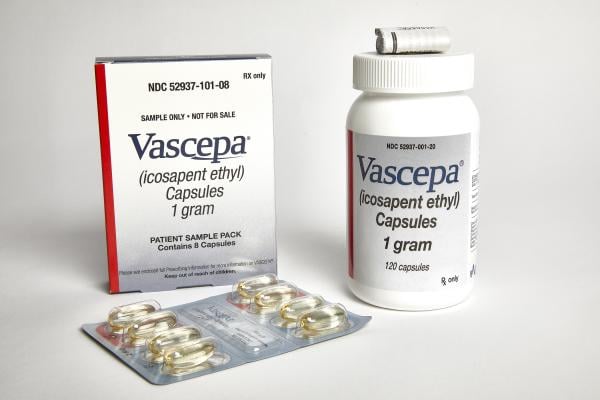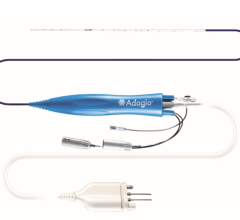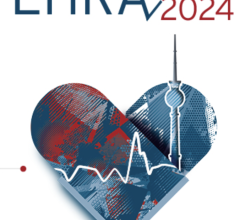
August 29, 2022 — Amarin Corporation plc announced that new REDUCE-IT data show that VASCEPA/VAZKEPA (icosapent ethyl) significantly reduced cardiovascular (CV) events in patients with a history of smoking.
In this post hoc exploratory analysis of REDUCE-IT, icosapent ethyl (IPE) treatment significantly reduced the risk of fist and total (first and subsequent) primary composite events (CV death, MI, stroke, coronary revascularization, or hospitalization for unstable angina) in current/former smokers by 23% and in former smokers by 29%, compared to patients who were assigned to placebo. IPE treatment reduced the incidence of CV events in current smokers by 23.8% and former smokers by 23.0% to levels observed in never smokers (25.7%) in the placebo group. These data were presented today during an Oral Abstract session at the European Society of Cardiology (ESC) Congress 2022 in Barcelona, Spain and published in EHJ Cardiovascular Pharmacotherapy.
“These REDUCE-IT subgroup data provide us with valuable insight into the role IPE may play in helping reduce the risk of cardiovascular events in patients with a history of smoking to levels observed in those who are never-smokers,” said Michael Miller, M.D., cardiologist and Chief of Medicine, Corporal Michael J Crescenz Veterans Affairs Medical Center and Vice Chair of Medicine, Hospital of the University of Pennsylvania in Philadelphia. “While smoking cessation should always be recommended as a primary step to reduce the risk of cardiovascular events, these data raise the possibility that IPE treatment may reduce the excess cardiovascular risks in patients with a history of smoking, or current smokers, and other CV risk factors.”
In the study, investigators sought to evaluate the effects of IPE on the risk of CV events and safety measures in patients by history of smoking. The effects of IPE on first and total primary and key secondary endpoints were evaluated in the REDUCE-IT study using post hoc exploratory analyses based upon smoking history. Groups were classified as never smokers (n=3264), former smokers (n=3672), and current smokers (n=1241). Compared with placebo, IPE use in combined current and former smokers (n=4913) was associated with significant reductions in first primary composite events (hazard ratio, 0.77 [95% CI, 0.68-0.87]; P <0.0001) and in total primary composite events (rate ratio, 0.71 [95% CI, 0.61-0.82]; P <0.0001). Overall, there were similar estimated rates of first occurrences of CV death, MI, stroke, coronary revascularization, or hospitalization for unstable angina in current smokers (23.8%) and former smokers (23.0%) assigned to IPE compared with never smokers assigned to placebo (25.7%).
Limitations include that REDUCE-IT was not powered for subgroup analyses.
All analyses highlighted above were funded by Amarin. Dr. Deepak Bhatt received research funding paid to Brigham and Women’s Hospital from Amarin for his role as the Chair of REDUCE-IT.
For more information: www.amarincorp.com
More news from the European Society of Cardiology (ESC) 2022
Related content:
Research Shows Potential to Reduce Major Cardiovascular (CV) Events
Prescription Omega-3 Pill Did Not Affect Outcome for Non-hospitalized Adults With COVID-19
VIDEO: Icosapent Ethyl Significantly Reduces Coronary Plaque in EVAPORATE Study
Icosapent Ethyl Significantly Reduces Coronary Plaque in EVAPORATE Study


 August 29, 2025
August 29, 2025 









